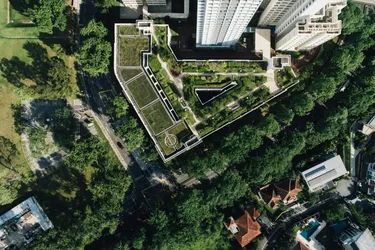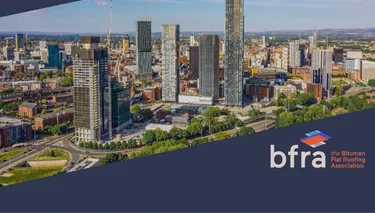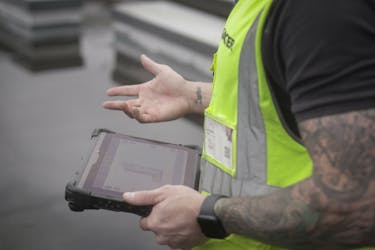
A roof is one of the most exposed elements of any building – a barrier protecting people, structure, and contents from the weather. But when they fail, the consequences ripple far beyond the cost of repairs. Water ingress, insulation breakdown, tenant disruption, and even structural damage can escalate quickly if a roof is allowed to deteriorate unchecked.
Proactive maintenance and refurbishment are an opportunity to change that story. We specialise in helping clients make the most of this opportunity, with expert guidance, certified systems, and cutting-edge survey tools like our 3D scanning technology.
Three routes: repair, overlay, or replace
At Axter, every refurbishment project begins with an assessment of the roof’s condition. Our approach ensures the right solution is selected, based on reliable data.
1. Repair
For localised defects – such as loose upstand flashing, isolated penetrations, or gutter detail failures – repair is often the most appropriate approach. Typically delivered using materials that are sympathetic to the original system, repairs are quick, cost-effective, and can extend the roof's service life.
Repair in practice: Yvonne Arnaud Theatre
The Yvonne Arnaud Theatre in Guildford is a listed building and a key cultural venue, which recently underwent a comprehensive internal refit. But before any of the theatre’s renovation could begin inside, the roof needed to be addressed. The theatre’s existing roof was already bituminous, so Axter’s Excel® system – a high-performance felt membrane – was selected to tie into the original build. This ensured a reliable and visually sympathetic solution, delivered quickly and efficiently.
“What made this project stand out was the timing. The work was carried out before major issues took hold. This proactive repair approach avoided the need for a full strip-and-replace, keeping disruption and waste to a minimum, and allowing the internal works to proceed on schedule.”
Sam Heard, Axter’s Distribution and Refurbishment Divisional Manager
2. Overlay
Where the roof deck and insulation are dry and structurally sound, an overlay presents a highly effective refurbishment strategy. A new single membrane is applied over the existing system, often following surface preparation, removal of blisters, or other minor works. It is often the best-value whole-roof solution, providing comprehensive performance uplift without the complete disruption of a renewal.
Overlay in practice: Bexley Park Sports & Social Club
The original roof, over 40 years old, showed signs of wear including leaks around rooflights. Axter was commissioned to refurbish the main building’s roof, which included complex features like a barrel roof and deteriorated structures such as a rotten chipboard under a water tank. A full overlay using reinforced bitumen membranes (RBM) was chosen for durability and cost-efficiency, alongside flame-free Starcoat® PMMA for fire risk areas.
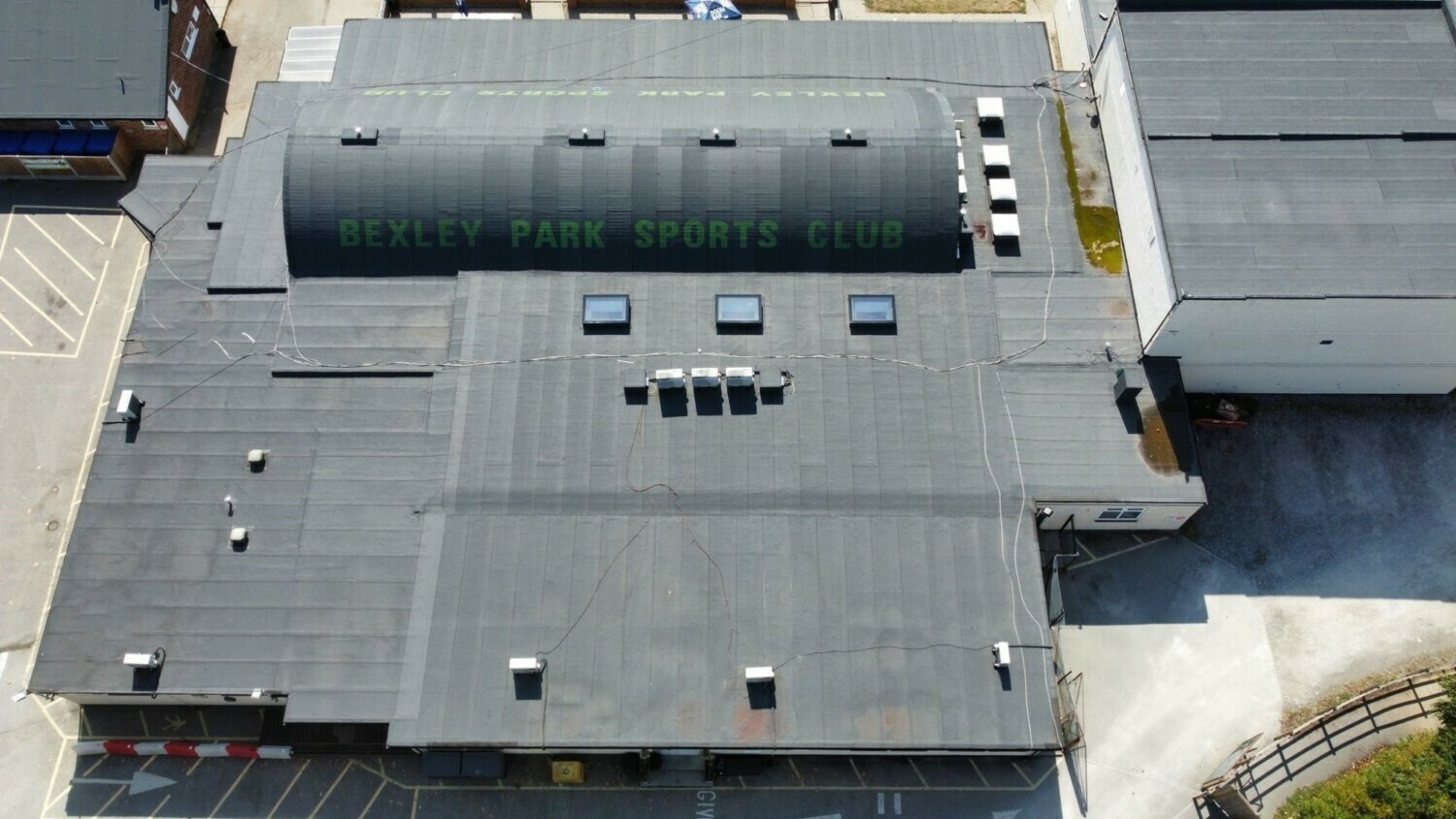
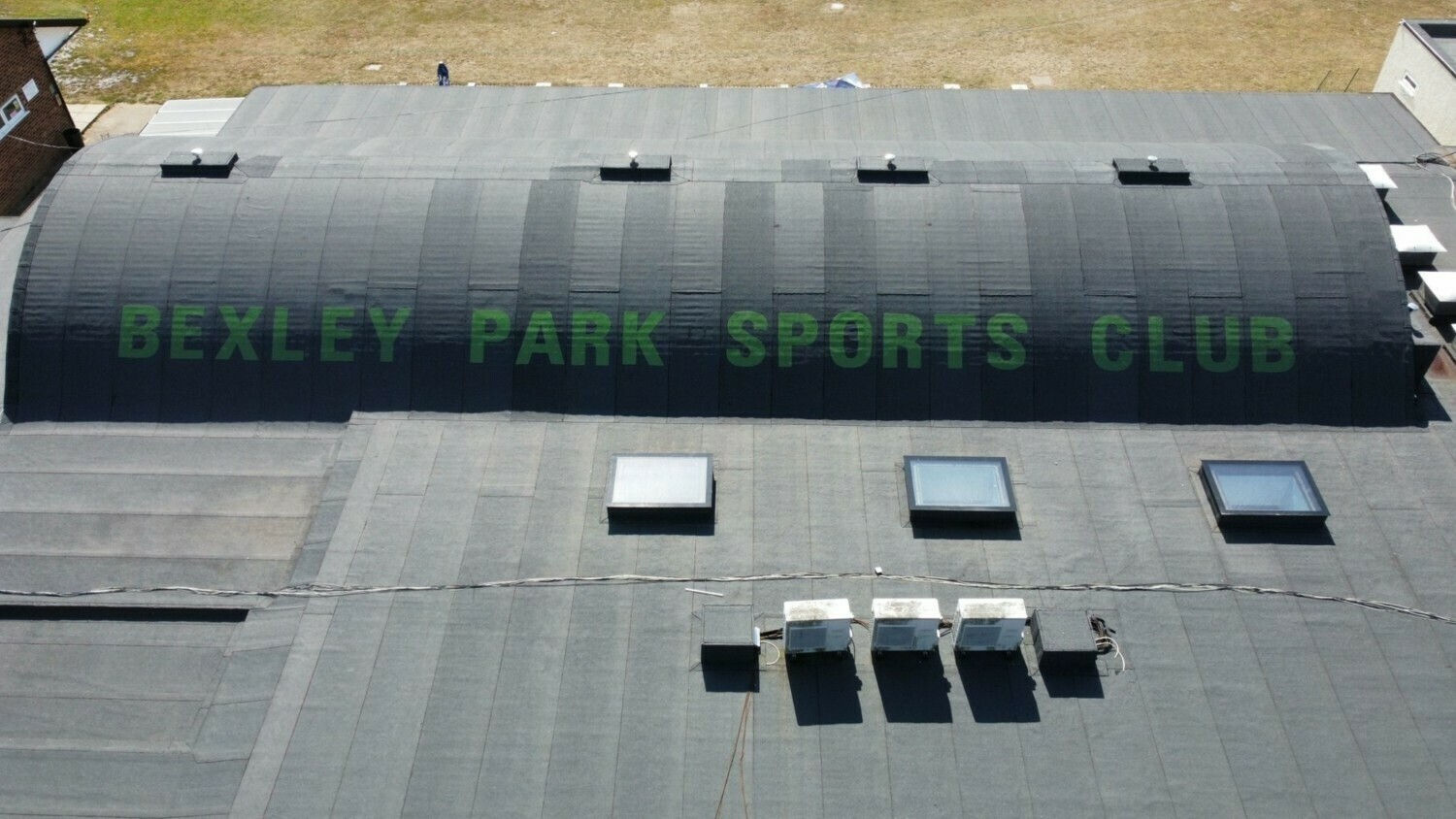
3. Replace
Sometimes there is no alternative. If a roof has reached the end of its life, and moisture or damage has compromised the structure, a full replacement may be required. In these instances, the deck, insulation, and membrane are removed and replaced entirely.
This is always the last resort. Full renewal is costly, intrusive, and carbon intensive, which is why we work with clients to identify and resolve problems long before they reach this point.
Replace in practice: Abbots Avenue West
Abbots Avenue West, a residential block in St Albans, required a full roof refurbishment due to severe waterproofing failures and thermal inefficiencies. We conducted thorough surveys revealing extensive damage, necessitating a complete roof strip. The solution involved installing Axter’s Excel® reinforced bituminous membrane and tapered PIR insulation systems. Despite weather challenges, the project was completed ahead of schedule, ensuring high-quality workmanship and minimal inconvenience for residents.
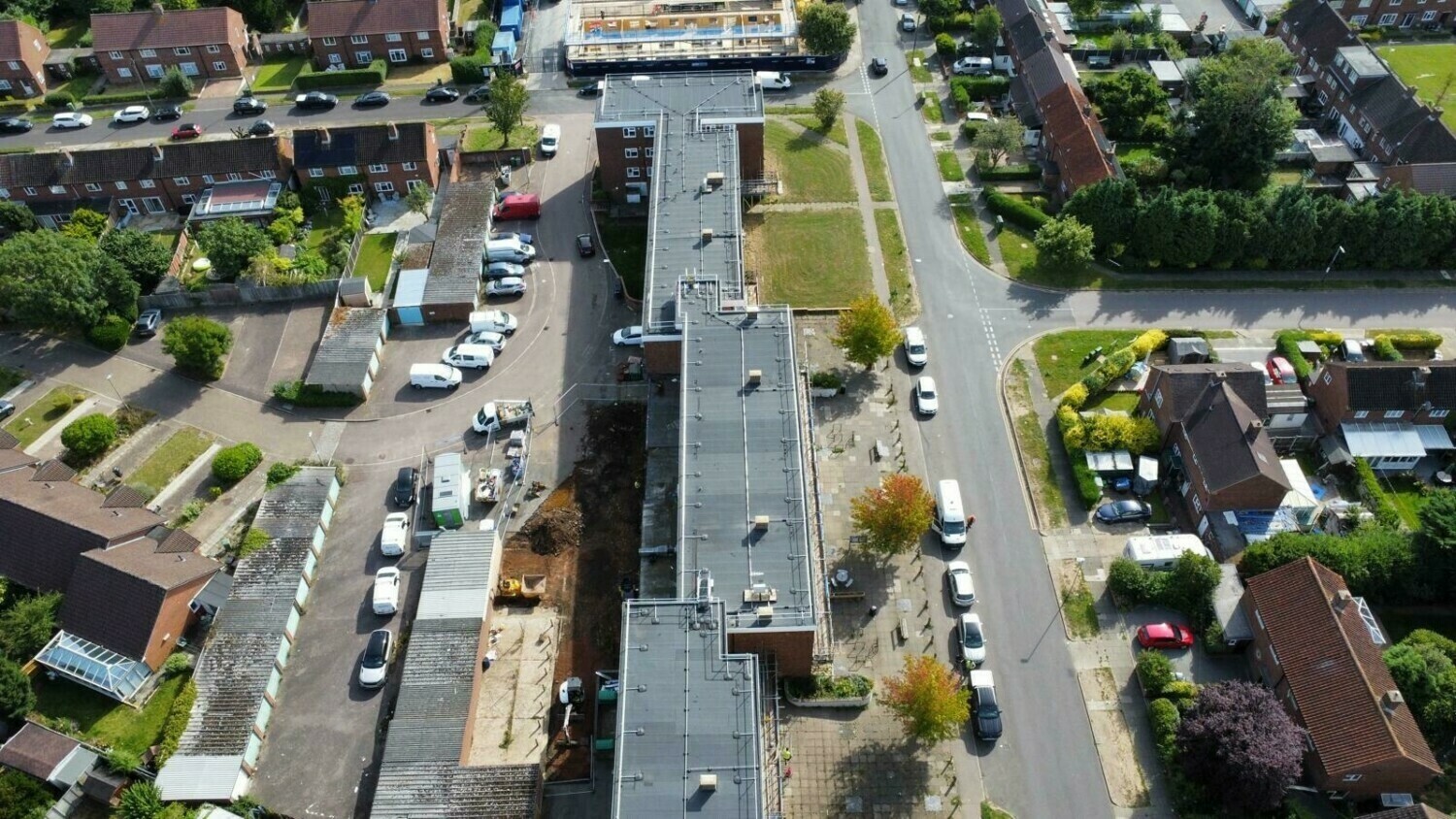
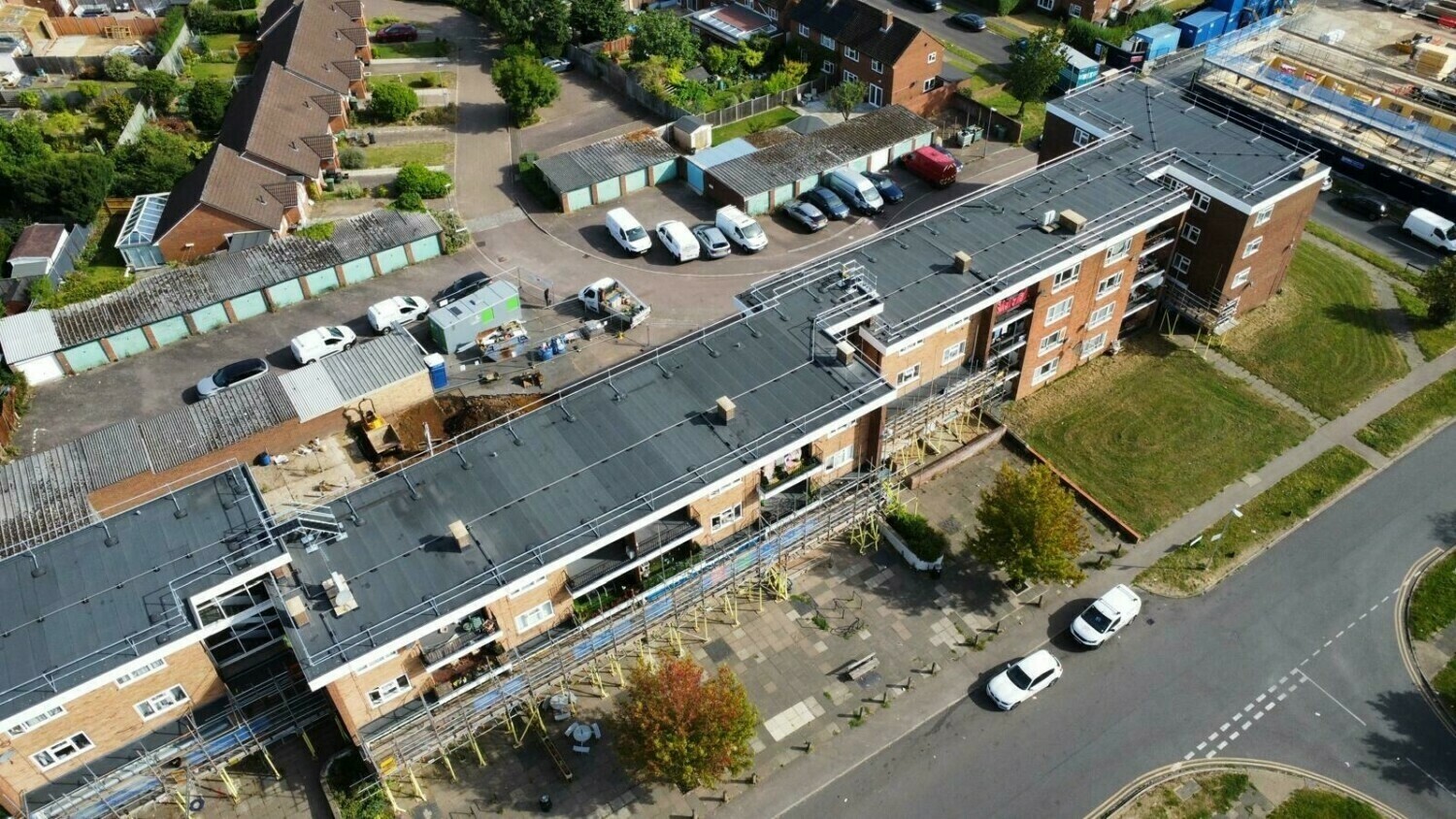
Retrofit: Upgrading, not just repairing
Refurbishment is not simply about stopping leaks. It is a chance to ask: what else can this roof deliver?
With the right design, flat roofs can improve energy efficiency through upgraded insulation; support renewable generation with solar PV; manage rainwater via blue roof solutions; and provide urban biodiversity through green roofs.
Retrofit in action: London Pavilion, Piccadilly Circus
Located in the heart of Piccadilly Circus, the London Pavilion is a Grade II listed landmark steeped in history and surrounded by some of London’s busiest streets. This ambitious retrofit project showcases the potential of bringing renewable energy to heritage buildings. By installing a non-invasive ballasted solar PV system, we transformed the Pavilion into a model of sustainability, without compromising its historic character.
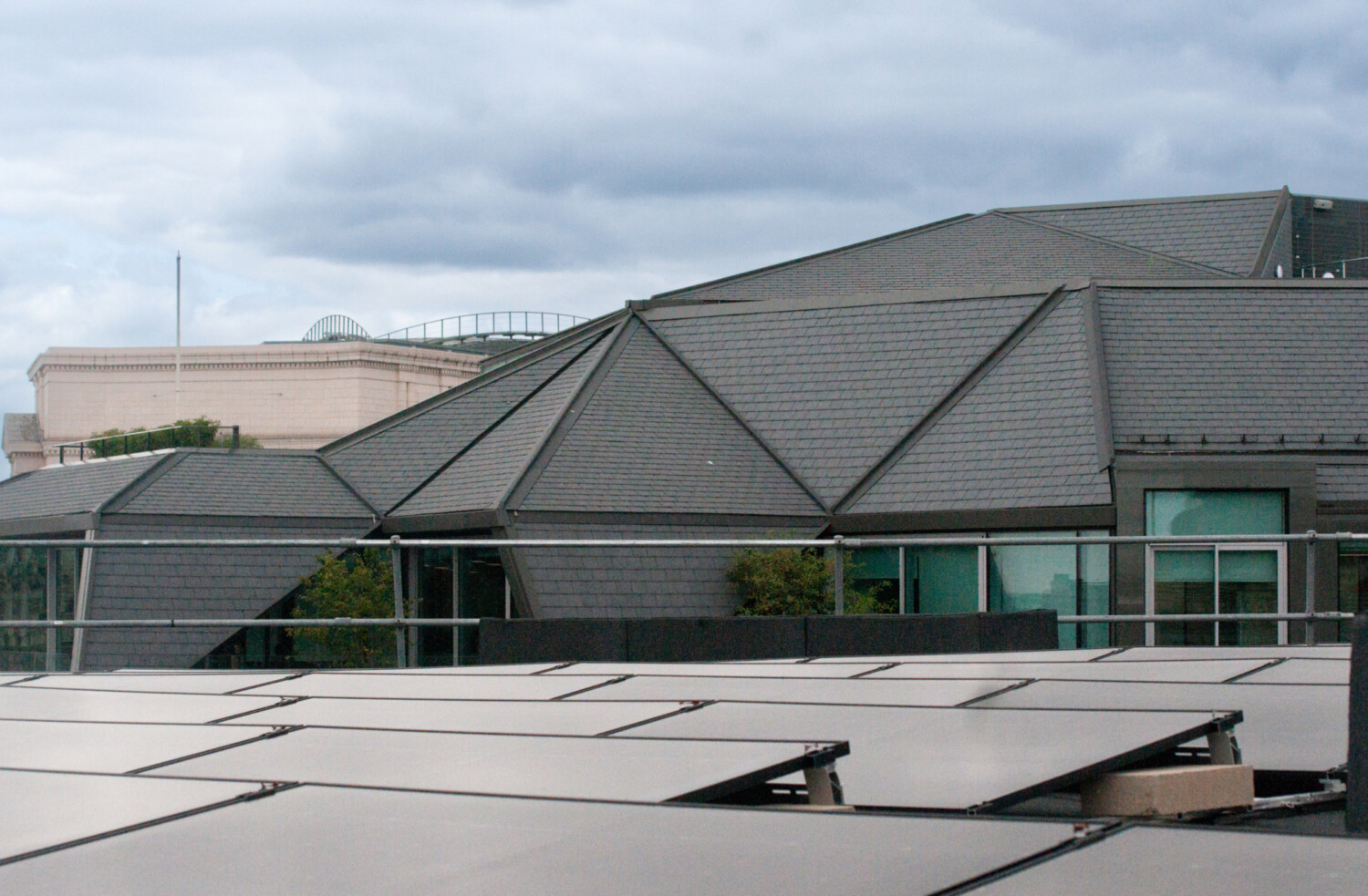
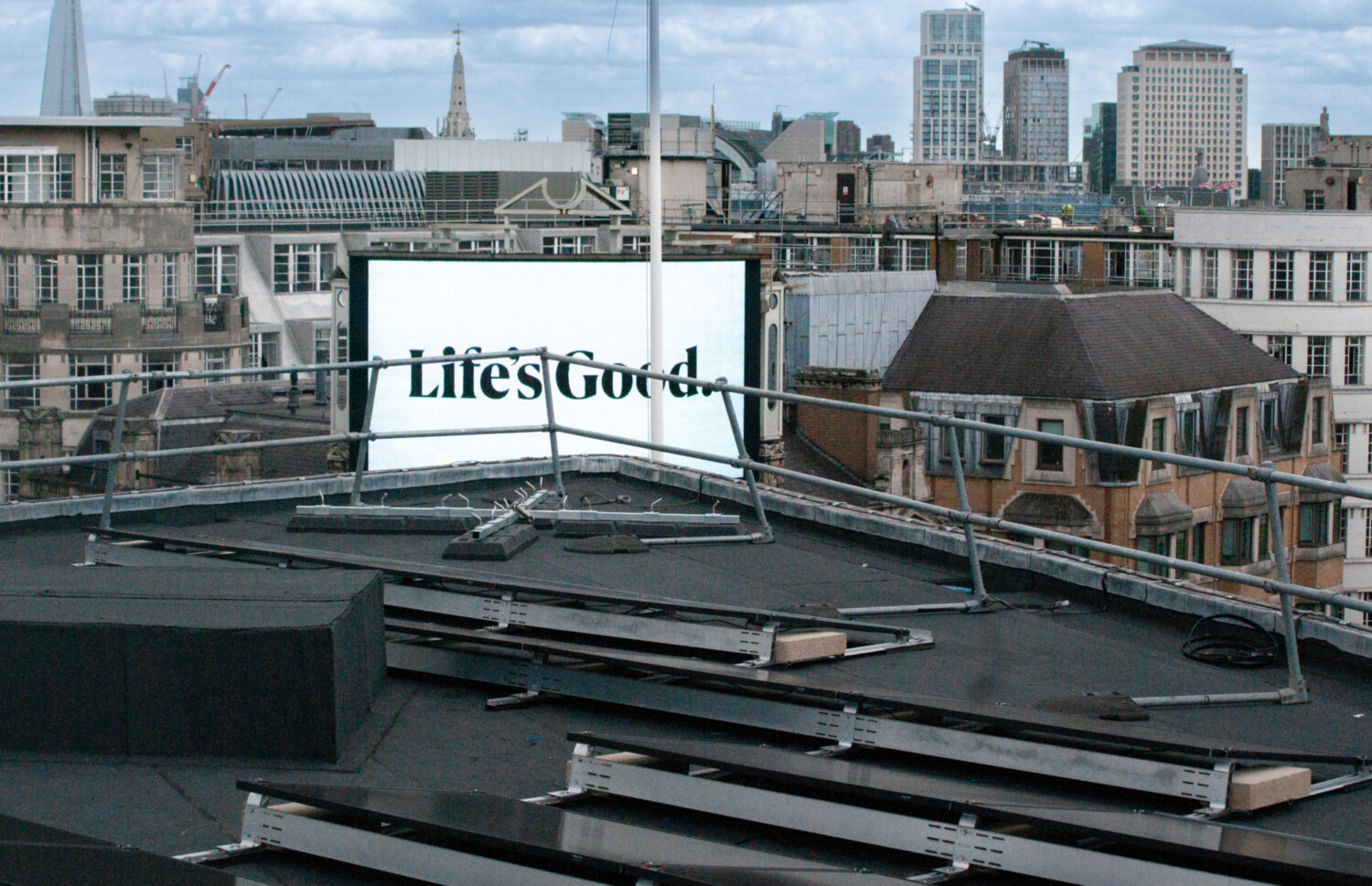
The terms ‘retrofit’ and ‘refurbishment’ are often used interchangeably when discussing roofing projects, but they signify distinct processes. Read our article to learn more about the difference.
The more sustainable choice
Refurbishment allows building owners to retain embodied carbon, reduce waste, and avoid the environmental cost of full replacement. When paired with retrofitting measures such as thermal upgrades, stormwater management, or solar PV, a flat roof can deliver meaningful performance improvements without the need to build new.
“We’re seeing a growing demand for roof refurbishment driven by the need to make better use of our existing buildings,” says Sam. “Eighty per cent of the buildings that will exist in 2050 already stand today, so maintaining, upgrading, and adapting this existing stock is essential if the UK is to meet its net zero targets.”
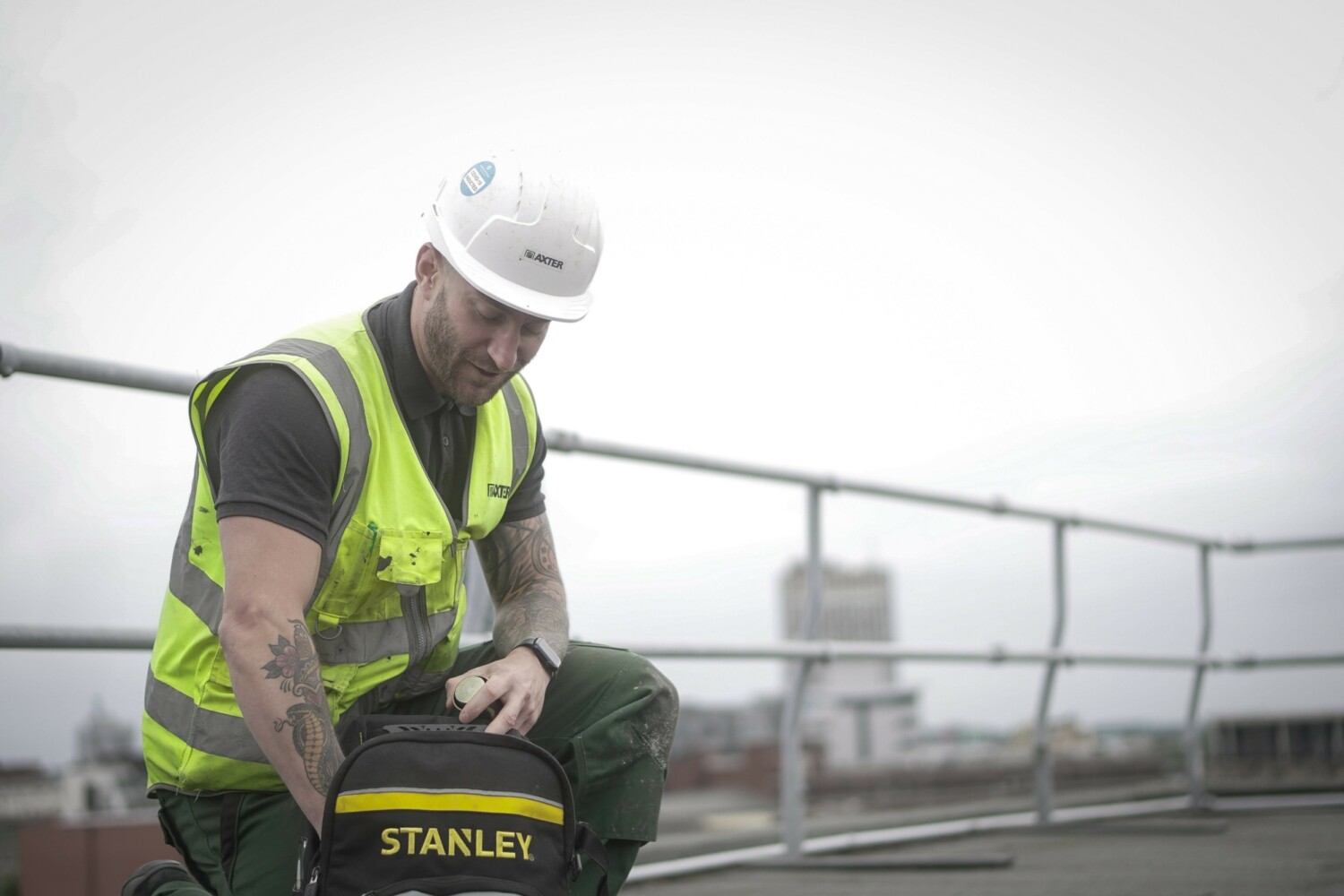
Read our interview with Sam Heard to learn more about why roof refurbishment is the smart, cost-effective choice, its role in the UK’s transition to a Net Zero society, and how technology is unlocking untapped opportunities to maximise roof performance.
The Axter approach
Axter’s approach to roof refurbishment is built on delivering a comprehensive, end-to-end service. Every stage – from initial assessment and design to installation and post-project support – is expertly managed to achieve the best possible outcome.
We provide detailed assessments and design input from the earliest stage. Accurate information is essential before any work begins, which is why we invest in advanced surveying technology – including 3D scanning – to give clients a clear, data-led understanding of their roof’s condition.
We offer continued support throughout the project lifecycle, with robust quality assurance and guarantees that provide lasting peace of mind.
We also work closely with architects and designers to align materials and detailing, ensuring the refurbished roof complements the building’s existing character.
If you’re interested in learning more about Axter’s refurbishment services, contact the team at Axter; we would love to hear from you.

